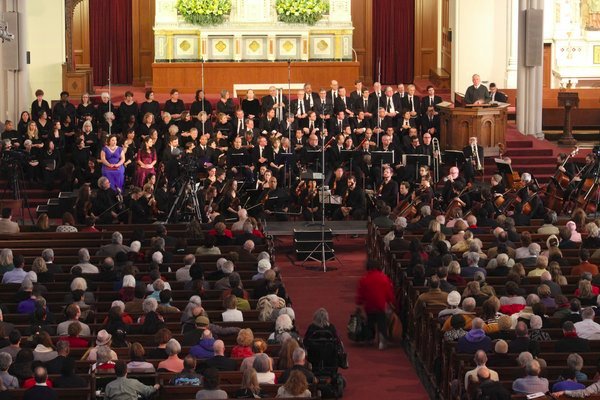|
|
Concert in Memory of JFK: Immortality in the Presidency
22 January 2014
by Dennis Speed I was Twenty-three years old at the turn of the century. It was a time of brave expectations. Many believed that a new epoch was at hand— that the dawn of the twentieth century would prove to be a turning point in the affairs of men. They cited recent scientific advances and predicted a future of great social progress. The era, they said, was approaching when poverty and hunger would at last disappear. In the way people make fervent resolutions at the start of a new year, the world seemed to be resolving at the start of a new century to undergo a change for the better. Who then foresaw that the coming decades would bring the unimaginable horrors of two world wars, concentration camps, and atomic bombs? —Those capable of foresight—and for civilization to survive, the American population must become so capable—will recognize the truth in Casals’ observation. Yet, it is our duty to shape the future, and thus to know it. To paraphrase another slain U.S. President: We are now engaged in a 150 years war, testing whether any nation, so conceived and so dedicated, as is the United States, can long endure. Assassinations against American Presidents, have been the preferred criminal method of choice, for dealing with the problem of the American Cultural Exception. So it was with John Kennedy, his brother Robert, and Dr. Martin Luther King. To respond to the challenge of reproducing and increasing the power of foresight for civilization’s survival in the short and long term is the unique mission of the Schiller Institute, a mission which the Institute brought to the City of Boston on Sunday, Jan. 19. The Schiller Institute Chorus, augmented by additional singers and an orchestra largely comprised of volunteers from the New England Conservatory of Music, presented Mozart’s Requiem in its entirety to an audience of 1,200 at Boston’s Cathedral of the Holy Cross, performed exactly 50 years to the day, of a 1964 Solemn High Requiem Mass specially requested by the Kennedy family. One year after his October 1962 defiance of that faction of “principalities and powers,” including Britain’s Lord Bertrand Russell, that dared to believe that nuclear war against the Soviet Union was not only conceivable, but winnable (the Cuban Missile crisis), John Kennedy was murdered in Dallas. His assassination, along with that of his brother Robert, and of Martin Luther King, has hung “like a dead hand upon the brain of the living,” until now. Four generations have been unable to shake off their effects. That is because there is only one reliable method for doing so: People must be elevated above and beyond their own pre-selected, limiting self-expectation. People require, not “the facts” of “what really happened,” but the fire of insight needed to reverse our unending national trauma. No preaching, slogans, or imprecations will cause a terrorized people to have courage. Only their own voices, heard as through the mirror of a great artistic performance, can... [To Continue]
|


